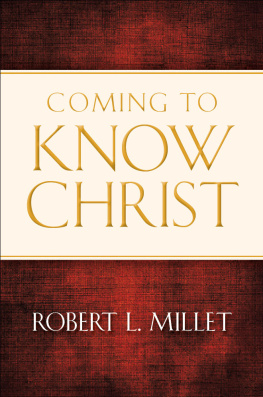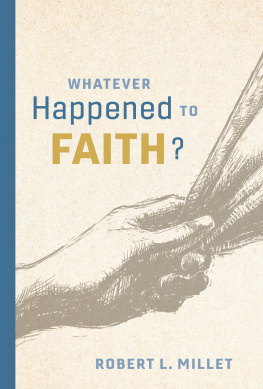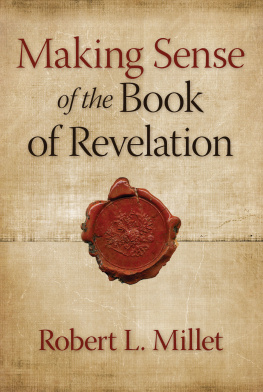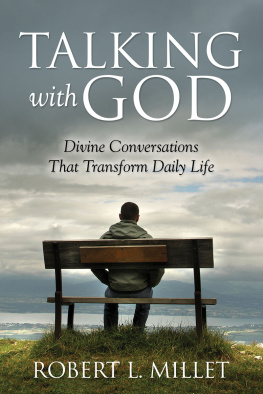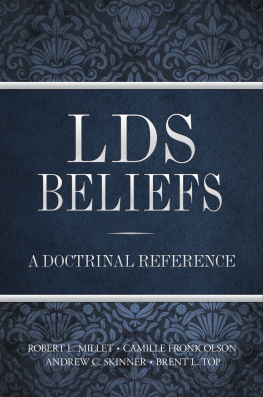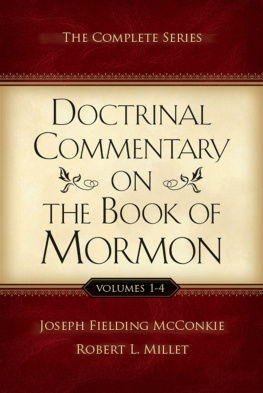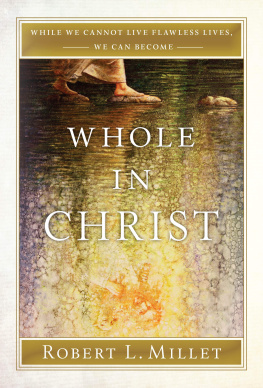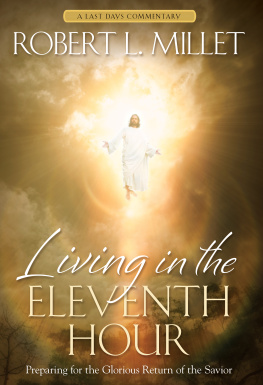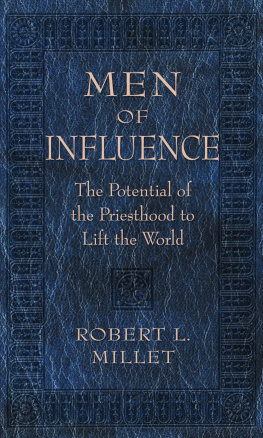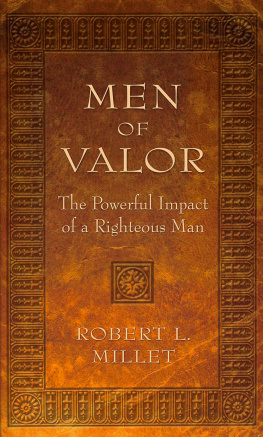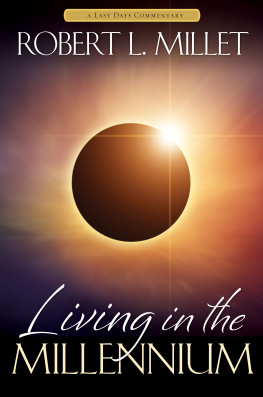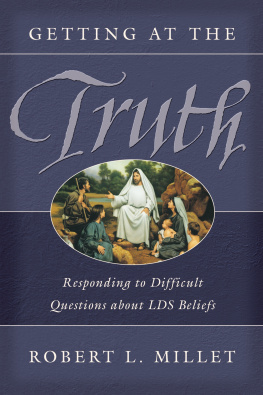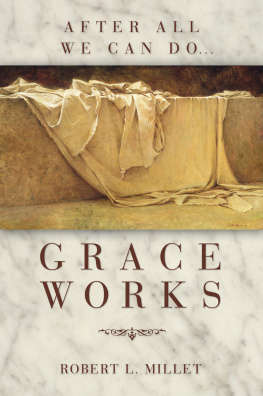Robert L. Millet - Coming to Know Christ
Here you can read online Robert L. Millet - Coming to Know Christ full text of the book (entire story) in english for free. Download pdf and epub, get meaning, cover and reviews about this ebook. year: 2012, publisher: Deseret Book Company, genre: Religion. Description of the work, (preface) as well as reviews are available. Best literature library LitArk.com created for fans of good reading and offers a wide selection of genres:
Romance novel
Science fiction
Adventure
Detective
Science
History
Home and family
Prose
Art
Politics
Computer
Non-fiction
Religion
Business
Children
Humor
Choose a favorite category and find really read worthwhile books. Enjoy immersion in the world of imagination, feel the emotions of the characters or learn something new for yourself, make an fascinating discovery.
- Book:Coming to Know Christ
- Author:
- Publisher:Deseret Book Company
- Genre:
- Year:2012
- Rating:5 / 5
- Favourites:Add to favourites
- Your mark:
- 100
- 1
- 2
- 3
- 4
- 5
Coming to Know Christ: summary, description and annotation
We offer to read an annotation, description, summary or preface (depends on what the author of the book "Coming to Know Christ" wrote himself). If you haven't found the necessary information about the book — write in the comments, we will try to find it.
In this thoughtful volume and with his warm, accessible style, author Robert L. Millet shares poignant stories and fresh scriptural and doctrinal insights to help us feel our Saviors love and realize that He stands ready to assist us in coming to know Him.
Coming to Know Christ — read online for free the complete book (whole text) full work
Below is the text of the book, divided by pages. System saving the place of the last page read, allows you to conveniently read the book "Coming to Know Christ" online for free, without having to search again every time where you left off. Put a bookmark, and you can go to the page where you finished reading at any time.
Font size:
Interval:
Bookmark:

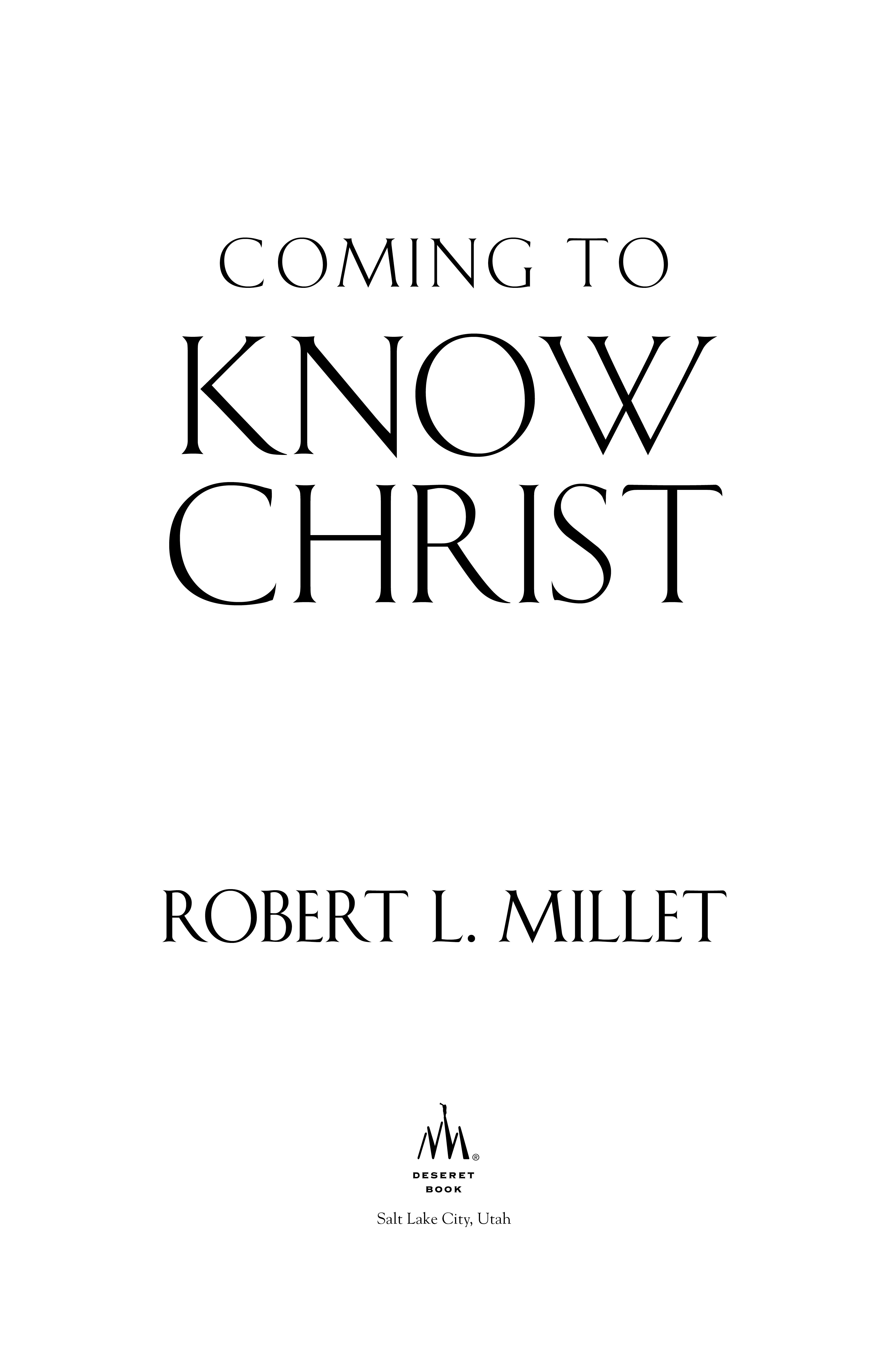
All rights reserved. No part of this book may be reproduced in any form or by any means without permission in writing from the publisher, Deseret Book Company, P.O. Box 30178, Salt Lake City Utah 30178. This work is not an official publication of The Church of Jesus Christ of Latter-day Saints. The views expressed herein are the responsibility of the author and do not necessarily represent the position of the Church or of Deseret Book. Deseret Book is a registered trademark of Deseret Book Company.
Library of Congress Cataloging-in-Publication Data
Millet, Robert L., author.
Coming to know Christ / Robert L. Millet.
pages cm.
Includes bibliographical references and index.
ISBN 978-1-60907-013-7 (hardbound : alk. paper)
1. Jesus ChristMormon interpretations. 2. The Church of Jesus Christ of Latter-day SaintsDoctrines. 3. Mormon ChurchDoctrines. I. Title.
BX8643.J4M545 2012
232dc23 2012003639
Printed in the United States of America
Publishers Printing, Salt Lake City, UT
10 9 8 7 6 5 4 3 2 1
Chapter 1
After the Image of Our Own God
Simon Peter had spent three years beside his Master, traveling from village to village, gazing with awe as Jesus ministered to the widows, healed the children of Roman officials, taught the gospel of the kingdom, exposed and condemned the hypocrisy and self-righteousness of his enemies, and sought to prepare his chosen Twelve for his eventual departure. Peter had been privy to sacred and unspeakable moments, had witnessed firsthand the mercy and majesty of this most unusual and powerful man, this Jesus of Nazareth. He had, in private quarters, seen the dead brought back to life. He had, in the midst of multitudes, beheld the lowly Nazarene feed five thousand men, plus women and children, with only five loaves of bread and two fishes.
Simon had, on the holy Mount, been transfigured, lifted spiritually to a higher plane, with his Lord and his apostolic associates James and John; had heard the voice of God the Father speak out of the Shekinah, the holy cloud; and had received the more sure word of prophecy and thereby gained the assurance of eternal life (2 Peter 1:19; D&C 131:56). He had witnessed the arrest of Jesus, had beheld at least a part of the mock trials, and had seen his world come crashing down as the Messiah yielded himself to the hands of sinful men and the ignominy of death by crucifixion. Peters was a cold, dark, and dreary world for three days, as the Jews counted time.
But the morning of resurrection came. Reports reached the senior apostle that the tomb was empty, that Christ had burst the bands of death, that Jesus had risen from the grave. Eventually Peter was blessed with a personal appearance of the risen Lord and also met with him in company with the other apostles on several occasions. Simon was delighted but mystified. Excited but confused. Thrilled but full of questions. What did it all mean? What were they to do, this tiny band of loyal apostles, to perpetuate the work of the Master when the Master was soon to leave them? Only these eleven souls could know the depth of anxiety and perplexity that must have surged through their hearts and challenged their minds as they witnessed the ascent of Jesus the Christ, their Savior and Redeemer, into the heavens.
There were together at the Sea of Galilee Simon Peter, and Thomas called Didymus, and Nathanael of Cana in Galilee, and the [two] sons of Zebedee [James and John], and two other of his disciples. Simon Peter saith unto them, I go a fishing. They say unto him, We also go with thee (John 21:23; italics added). Unclear of what they should do, uncertain of how their ministry should proceed, the apostles of the Lamb of God, those chosen to bear witness of the name of Christ in all the world (D&C 107:23), returned to their boats and their nets. It was business as usual. It would be some weeks before the Pentecostal outpouring would take place, some time yet before the testimony and grasp of the perspective and poignancy of the Resurrection would dawn upon them, the sure knowledge of it would be planted in their hearts by the power of the Holy Spirit, and they themselves transformed into bold and indefatigable witnesses of what had transpired and of how this gospel of the kingdom would indeed be spread throughout the known world.
On the same day that these brethren returned to their nets, still devoid of vision, and sat on the seashore and ate fish prepared by the resurrected Redeemer, Jesus saith to Simon Peter, Simon, son of Jonas, lovest thou me more than these? (John 21:15; italics added). Did He mean, Simon, son of Jonas, do you love me more than any of the other apostles love me? Or was it, Simon, son of Jonas, do you love me more than you love the other apostles? Or did He mean, Simon, son of Jonas, do you love me more than you love these fish? Or, Do you love me more than your old business, your old way of life? If so, then lets get back to our business; we have work to do. If you truly love me above and beyond all else, feed my lambs. Feed my sheep.
That scene, of course, is familiar to every Christian. We have heard scores of sermons and lessons on the importance of caring for others as a sign of our love for the Savior (compare Matthew 25:40; Mosiah 2:17). But how often have we taken the time and exercised the mental and spiritual energy to turn the terrible question upon ourselves? Bob, do you love me more than these home furnishings, these stock portfolios, these elegant automobiles, these expensive toys? Do you love me more than position and prestige? Do you love me more than public esteem, social acclaim, or the flattery of prominent men and women? Are you more concerned with Christ esteem than you are with self-esteem? Are you more wedded to my work and glory (Moses 1:39) than you are to your companys mission statement? Do you know what my will is for you? Does my will really matter more to you than your will does?
Such questions get at the essence of having an eye single to the glory of God (D&C 88:67), of yielding our hearts to God (Helaman 3:35). They strike at the very core of who we are, why we are, what we do, what we refrain from doing, and what drives and directs our feelings, attitudes, and behaviors. They are the kinds of questionshaunting and penetrating as they arethat when pondered, reflected upon, and attended to regularly in earnestness and sincerity, mold our character and transform our human nature. They are a significant part of turning a natural man into a saint (Mosiah 3:19), an old sinner into a new creature in Christ (2 Corinthians 5:17; Mosiah 27:26).
In his best-selling book The Purpose-Driven Life, Pastor Rick Warren suggests that one of the first things our Heavenly Father may choose to ask us at the judgment bar is simply this: What have you done with my Son?
What a question! Is it not essentially the same as such questions as, Where does Jesus fit in your life? Is he the central feature, the divine center? Or is he ancillary, tangential, and at best an accessory to everything else in your daily walk and talk?
We must not allow Jesus Christ to become just another facet of our lives, any more than religion must be permitted to become one of many realms of our souls. I can well understand, C. S. Lewis said, how a man who is trying to love God and his neighbour should come to dislike the very word religion, a word, by the way, which hardly ever appears in the New Testament. Too many people, Lewis went on to say, substitute religion for Godas if navigation were substitutes for arrival, or battle for victory, or wooing for marriage, or in general the means for the end. But even in this present life, there is danger in the very concept of religion. It carries the suggestion that this is one more department of life, an extra department added to the economic, the social, the intellectual, the recreational, and all the rest. But that whose claims are infinite can have no standing as a department. Either it is an illusion or else our whole life falls under it. We have no non-religious activities; only religious and irreligious.
Font size:
Interval:
Bookmark:
Similar books «Coming to Know Christ»
Look at similar books to Coming to Know Christ. We have selected literature similar in name and meaning in the hope of providing readers with more options to find new, interesting, not yet read works.
Discussion, reviews of the book Coming to Know Christ and just readers' own opinions. Leave your comments, write what you think about the work, its meaning or the main characters. Specify what exactly you liked and what you didn't like, and why you think so.

